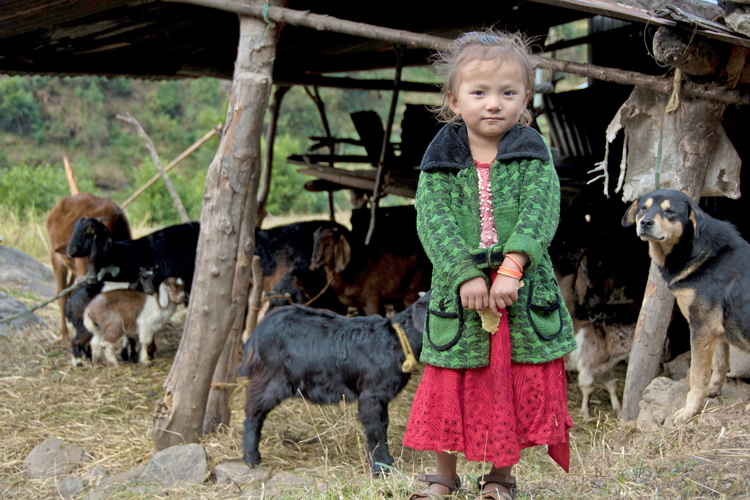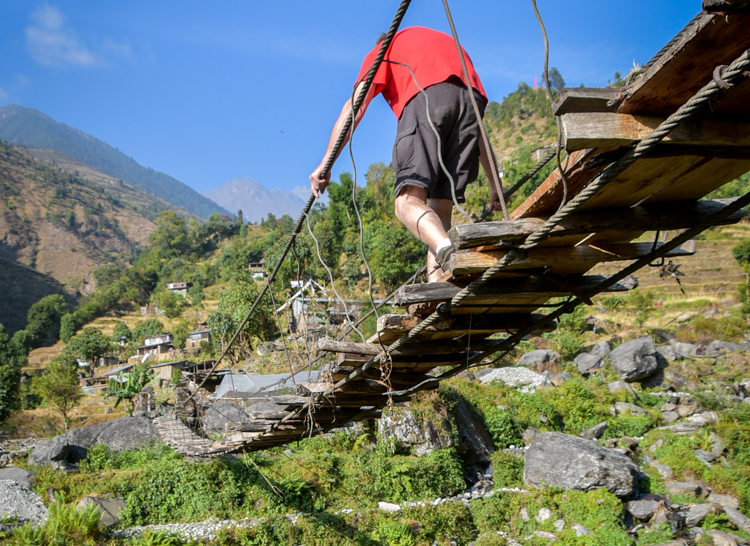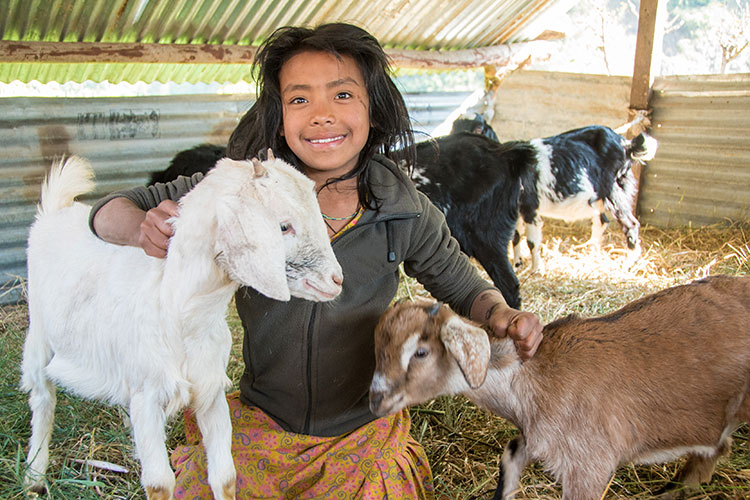The Hope Campaign has ended, but all donations through this article will be directed to the Human Trafficking & Slavery Ministry.

With groaning engine and grinding gears we lurched ever higher toward the snow-capped Himalayan Mountains before us. Behind, the valley below was bathed in glorious afternoon sunlight, a view unimpeded by the safety of guard rails—which made for some scary moments!
Much relieved, our team of six finally arrived at Tamti (name changed), a picturesque mountain village where, just a few years ago, no young girls could be found. Its remote location kept its people poor—and unnoticed— but the modern world eventually crept in via mobile phones and satellite TV. And although the village was a day’s torturous travel by road (as our group could attest!), it was less than an hour by helicopter from Kathmandu, Nepal’s capital city—a fact not lost on unscrupulous men who buy and sell young people into modern slavery. All they needed was a small field on which to land and conduct their sordid business—and unfortunately they found one.

Until relatively recently, foot bridges like this one, which evoke scenes from movies such as Indiana Jones, were the only means to reach Tamti
Soon the desperation of the village elders, partnered with shortsighted greed, led to their young girls being systematically whisked away to brothels near the Indian border and beyond—hellish places fueled by gambling and sex. The situation for the girls of Tamti village seemed hopeless.
Like other cultures that unearth some morally acceptable way to sell their daughters and sons into slavery for the “greater good” of the family, partners of Heaven’s Family’s Human Trafficking & Slavery Ministry in Nepal understood that Tamti’s problem was both spiritual and economic. But attempts to confront this cultural dysfunction with the gospel are met with resistance from strongly traditional Hindu-animistic citizens as well as a Hindu-leaning government. Billions around the world are under similar anti-Christian government or religious restrictions. In such places, including Nepal, we strive to show Jesus’ love by helping them economically, which also enables us to remain below the radar of resistance.
If this village values their girls in terms of economic benefit, perhaps we could help them generate income for their families so they won’t be trafficked, our partners thought. Any solution would have to work in that culture and be sustainable.
Our partners already knew village elders didn’t really want to sell their young girls, so they helped them create alternative business plans. Among other income-generating ideas for the village, such as providing meals and lodging for foreign trekkers—Nepal’s largest industry is tourism—they came up with a project they called Goats for Girls that would enable young village girls to earn money. The concept had been successfully implemented in another village [with the help of Heaven’s Family], they told them. The elders agreed to give these plans a try.

10-year-old Jerlina, who now attends 2nd grade, enjoys learning and playing with her goats.
To start the Goats for Girls project, they taught several at-risk girls how to raise goats. Graduates received certificates—important confidence builders—and each received up to five young goats. They fed and cared for their little flocks, for which they received a small salary each month. The girls were given school supplies and were required to attend the village school (which our partners helped build to give every child an education—a Himalayan-sized step toward prevention). Families were allowed to keep any milk and young the goats produced, and 12 months later fattened goats were sold. Proceeds replenished the salary fund and bought five more young goats to repeat the income cycle for another year.
The project worked. Goats for Girls and the homestay businesses worked so well, in fact, that the elders have since declared their village a “trafficking-free zone”—their girls are no longer for sale.
The best part is that the success of these little entrepreneurs has opened a door for the gospel in Tamti. Through the relationships our partners have nurtured over the years, the village chief and his son have given their hearts to Jesus Christ, and the community is being transformed by the power of God through love and godly business strategies. No longer is Tamti a place of “girl-lessness,” but of hope—you can see it on the faces of young mothers and their daughters, who no longer live in fear.



